Science and Technology
Sen. Bam continues work on reforms for Filipino scientists and start-ups
Sen. Bam: Don’t forget public schools in free WIFI rollout
Don’t forget our public schools and state universities and colleges (SUCs).
Senator Bam Aquino issued this call as the government prepares the rollout of Republic Act 10929 or the Free Internet Access Program in Public Places, which he pushed in the Senate as principal sponsor and co-author, saying Filipino students will benefit from free internet as a vital tool to further enrich their knowledge.
“Internet is an important tool in learning. Students are empowered by the internet in learning lessons, completing assignments, and research,” said Sen. Bam, principal sponsor and co-author of the measure in the Senate in his capacity as chairman of the Committee on Science and Technology.
“Magagamit din ito ng ating mga guro para mapabuti ang kanilang mga sistema ng pagtuturo,” added Sen. Bam.
Republic Act 10929 provides free internet access in all national and local government offices, public schools, public transport terminals, public hospitals and public libraries.
“This will expand internet access across public spaces in the Philippines, including public schools to aid in teaching methods and enhance learning,” the senator said.
In addition, the law contains provisions for the faster processing of permits for internet infrastructure, which is designed to fast-track the improvement in the country’s internet backbone.
As part of its mandate under the law, the Department of Information and Communications Technology (DICT) is tasked to craft a plan and a timeline for the rollout of the program.
In its latest report, the DICT said it’s planning to establish 250,000 Wi-Fi access points in public places throughout the country until 2022.
During this stint as chairman of the Committee on Trade, Commerce and Entrepreneurship in the 16th Congress, Sen. Bam spearheaded an investigation into the slow and expensive internet in the country.
The probe helped determine needed legislations to address the internet problem in the country and led to the release of a Department of Justice opinion on telco advertising.
The hearing also compelled the National Telecommunications Commission (NTC) to come out with guidelines on minimum internet speeds and conducted speed testing in various areas of the Philippines to check compliance of telcos.
As the current chairman of the Committee on Science and Technology, Sen. Bam is principal sponsor of the free internet reform. He also filed Senate Bill No. 171 or the Open Access in Data Transmission Act of 2016, which has yet to be passed into law to enable more players into and promote competition in the internet industry.
Principal sponsors have the responsibility of prioritizing bills in their respective committees, conducting hearings on bills assigned to their committee, defending the measures during the period of interpellation, consolidating proposals and amendments to their reforms, and leading the bicameral conference before a bill is passed into law.
—
Sen. Bam pushes for more players in internet, telco sector
Sen. Bam: Balik Scientist Bill hurdles Senate on third and final reading
The Senate has passed on third and final reading a measure seeking to attract scientists and experts of Filipino descent residing overseas to return to the Philippines and help boost the country’s research and development, according to Sen. Bam Aquino.
Principally authored and sponsored by Sen. Bam, Senate Bill No. 1533 under Committee Report No. 143, or the Balik Scientist Bill, hurdled the third and final reading via a 13-0 vote.
“This is a step towards improving the country’s research and development sector. We must support more initiatives to empower our scientists and researchers,” said Sen. Bam, chairman of the Committee on Science and Technology.
The measure aims to provide overseas Filipino scientists with financial benefits and incentives to encourage them to return to the Philippines and help boost the country’s research and development.
It seeks to institutionalize the Balik Scientist Program of the Department of Science and Technology (DOST), which successfully encouraged some of our scientists to return and contribute to research that will help address development gaps in the Philippines.
If enacted into law, Sen. Bam hopes that it will also address the lack of science professionals caused by the exodus of scientists and researchers to other countries.
In a recent committee hearing spearheaded by Sen. Bam, it was revealed that the Philippines has 189 scientists per million, a far cry from the ideal ratio of 380 scientists per million.
Compared to other countries, the Philippines lags behind South Korea and United States, which have 5,300 and 3,500 scientists per million, respectively. Malaysia, for its part, has 2,000 scientists per million.
A Balik Scientist is a science and technology expert or professional, as certified by the DOST, who is currently or who was formerly a Filipino citizen or a foreigner of Filipino descent, residing abroad, and contracted by the government to return and serve in the Philippines along his or her field of expertise under short, medium, or long term engagement.
Sen. Bam on the President’s invitation to China Telco players
Natutuwa tayo sa pagkilala ng Pangulo na kailangan nating pagandahin ang ating sektor ng telekomunikasyon sa pamamagitan ng kumpetisyon, subalit hindi tayo dapat malimita sa isang bansa lamang.
Kung ang maliit na bansa gaya ng Singapore ay mayroong anim na players sa telco sector, dapat maging ganito rin kasigla ang kumpetisyon sa ating bansa.
Habang isinusulong natin noon ang Philippine Competition Act, nakatagpo tayo ng interes mula sa mga kumpanyang galing Japan at Korea na gustong pumasok sa ating industriya ng telco.
Kahit ang maliliit nating local cable operators ay nais magsamasama upang makipagkumpitensya sa malalaking Telcos.
Gawin nating madali para sa mga kumpanyang ito na makapasok sa merkado at tanggalin na ang red tape upang mapaganda ang serbisyo ng internet at bumaba ang presyo nito para sa mga Pilipino.
Sen. Bam: Prepare for AI takeover of PH jobs
Instead of focusing on the threats of artificial intelligence (AI), Sen. Bam Aquino said the business community can harness AI to create more jobs, increase competitiveness, and improve products and services.
“While AI may very well be our competition in the marketplace of jobs, they might also be unintended rivals that push us to evolve, become more efficient, to learn and to relearn,” Sen. Bam stressed in his speech during the International Quality Conference, which was held at Okada Manila in Paranaque.
”And I hope this pushes us, not to shut our doors, but rather to kickstart our competitive spirit and develop our workforce for the future,” added Sen. Bam.
Sen. Bam also commended the Asia Pacific Quality Organization, the Global Benchmarking Network (GBN) and other participants of the event for tackling how to harness the latest technology for the development of various industries.
As chairman of the Committee on Science and Technology, Sen. Bam spearheaded an inquiry on the effects of AI in the country’s present workforce, especially in the business process outsourcing (BPO) industry.
During the hearing, it was discovered that AI will affect around 40,000 jobs in the contact center industry next year. However, it was projected that around 250,000 to 300,000 fresh employment opportunities will be created for those with data analysts and data programming skills. Sen. Bam these jobs can be opened up to Filipinos who are willing to learn and relearn.
“The key is to be prepared. We must prepare our workforce through adequate, accessible, affordable training, re-training and education,” said Sen. Bam, adding that the cooperation of between the private sector, academe and government agencies is critical to the evolution and development of the Filipino workforce.
Sen. Bam: Filipino scientists, innovators need our support
Sen. Bam Aquino urged government and the private sector to extend support to Filipino scientists and innovators as they can help find solutions to pressing problems like poverty, weak education system and even the drug problem.
“Our scientists, innovators and researchers need all the support they can get from us. Kailangan nila ang ating suporta upang makatulong sila sa pagresolba ng mga problemang kinakaharap ng ating bansa,” said Sen. Bam, chairman of the Committee on Science and Technology.
Through the combined efforts of the government and the private sector, Sen. Bam said Filipino scientists and innovators will be inspired to work hard for the country’s development.
Recently, the Senate tackled the three measures sponsored and co-authored by Sen. Bam in the plenary that aim to extend needed assistance to innovative start-ups and benefits to support Filipino scientists and researchers – Innovative Startup Act, Balik Scientist Act and Magna Carta for Scientists.
If enacted into law, innovative startups will enjoy benefits such as tax breaks and grants and other forms of assistance, including a faster process for business registration.
Innovative start-ups could also avail of technical assistance and training programs, free use of equipment, facilities and support for patenting or licensing of their product through the Intellectual Property Office of the Philippines.
The Balik Scientist Act and Magna Carta for Scientists both aim to ramp up support to Filipino scientists, engineers and researchers through financial benefits and other incentives.
“We hope the government, the private sector and the public can have a greater appreciation for our scientists and innovators,” said Sen. Bam.
Sen. Bam defends measures for start-ups, scientists and researchers
The Senate on Wednesday started plenary discussions on three measures that aim to provide needed assistance to innovative start-ups and benefits to support Filipino scientists and researchers.
Senator Bam Aquino, chairman of the Committee on Science and Technology, defended the three measures — Innovative Startup Act, Balik Scientist Act and Magna Carta for Scientists — during period of interpellation.
Sen. Bam, who stood as principal sponsor and co-authors of the said measures, underscored the importance of providing support to around 200,000 innovative start-ups in the country.
Innovative start-ups are businesses that provide unique and relevant solutions to pressing problems, from a simple application for finding a taxi and other systems for improving healthcare, supporting Filipino farmers and addressing unemployment.
“Our country has a number of promising start-ups and we need to provide them with the environment where they can grow and succeed, just like what their counterparts in other countries like United States and Israel are enjoying,” said Sen. Bam.
“Hopefully, this measure will unlock the potential of this sector. A lot of Filipino innovators are looking forward to this bill,” added Sen. Bam.
If enacted into law, innovative startups will enjoy benefits such as tax breaks and grants and other forms of assistance, including a faster process for business registration.
Innovative start-ups could also avail of technical assistance and training programs, free use of equipment, facilities and support for patenting or licensing of their product through the Intellectual Property Office of the Philippines.
Aside from the Innovative Start-up Act, the Senate also tackled the Balik Scientist Act and Magna Carta for Scientists, which both aim to ramp up support to Filipino scientists, engineers and researchers.
After the period of interpellation, the Senate will continue discussions on the said measures next month during period of amendments.
Sen. Bam sponsors 3 measures for welfare of start-ups, scientists and researchers
Sen. Bam Aquino recently sponsored three measures that aim to support Filipino scientists, engineers and innovative start-ups, believing that technology and innovative initiatives can help solve problems besetting the country.
Recently, Sen. Bam sponsored Senate Bill No. 1532 or the Innovative Startup Act where he urged colleagues to pass the measure that provides different forms of assistance to over 200,000 innovative start-up businesses, giving them better chance of succeeding.
If passed into law, it will provide support innovative startups through financial subsidies like tax breaks and grants and other forms of assistance such as ease of red tape in business registration.
It will also give technical assistance and training programs, free use of equipment, facilities and support for patenting or licensing of their product through the Intellectual Property Office of thePhilippines, according to Sen. Bam, chairman of the Committee on Science and Technology.
He also delivered his sponsorship speech for Senate Bill No. 1533 or the Balik Scientist Act and Senate Bill No. 1534 or the Magna Carta for Scientists. The two measures aim to promote the welfare of Filipino scientists, engineers and researchers.
“The challenge for us today is to ramp up support for Filipino scientists, engineers and researchers, and to harness their talents, not just to boost industries and business, but to build a better Philippines for all,” said Sen. Bam.
Currently, the Philippines has 189 scientists per million, far from the ideal target of 380 per million. “Our country still lacks 19, 000 scientists to meet the bare minimum that is essential and acceptable in the development of any country,” said Sen. Bam.
Senate Bill No. 1533 aims to encourage scientists, engineers and innovators working in different parts of the world to return and help solve the country’s problems through financial incentives.
The amendments to the Magna Carta for Scientists aim to streamline the process of providing benefits and incentives to S&T government personnel.
“Pahalagahan po natin ang agham at teknolohiya, ang mga siyentipiko, mga inhinyero at mga researcher upang tuluyang umasenso ang Pilipinas,” said Sen. Bam.
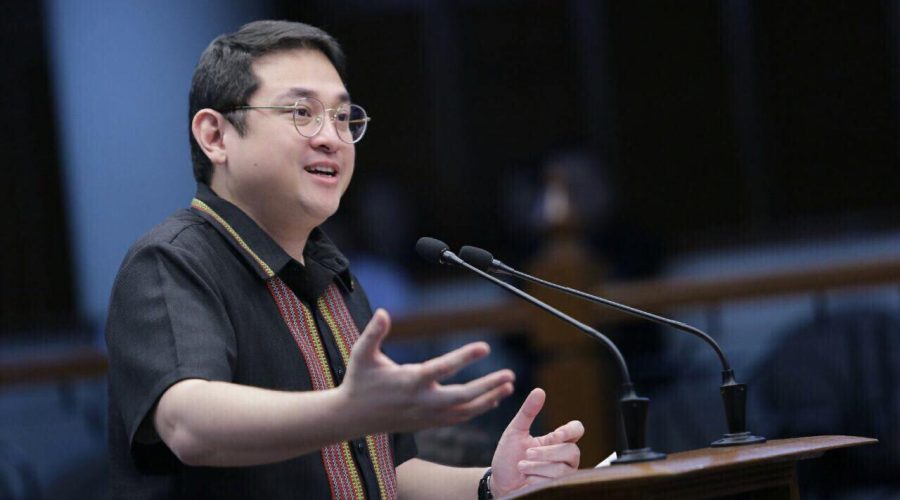
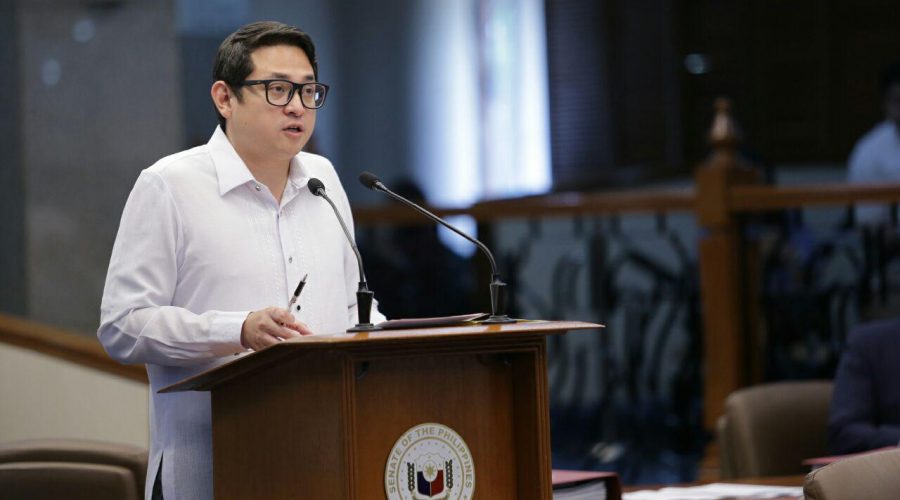
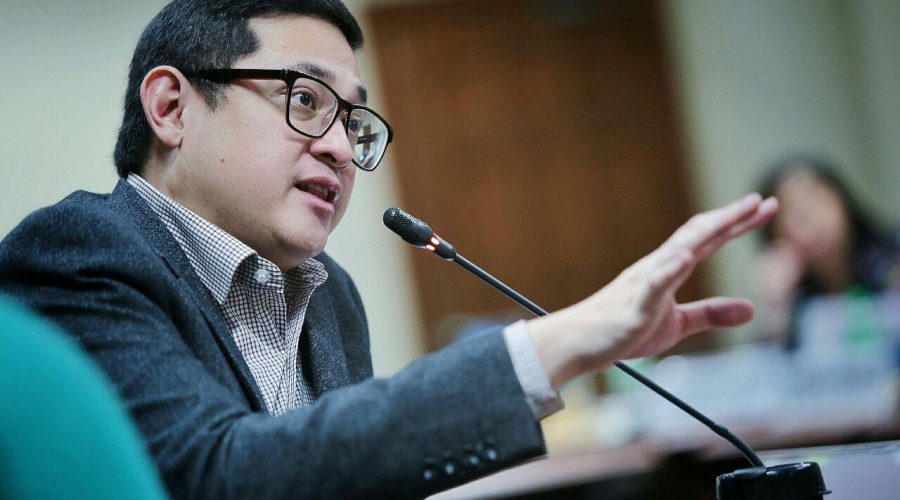
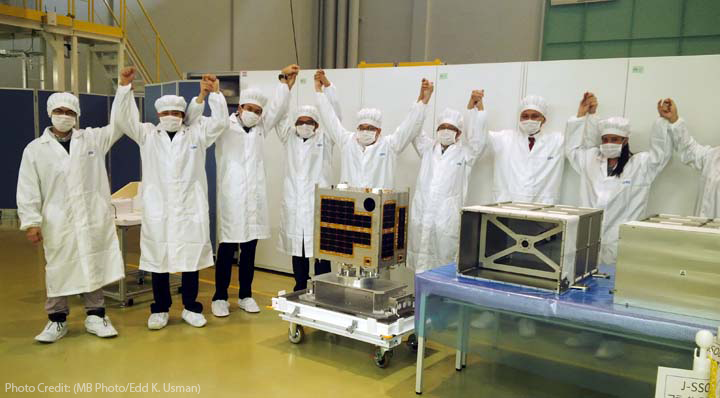
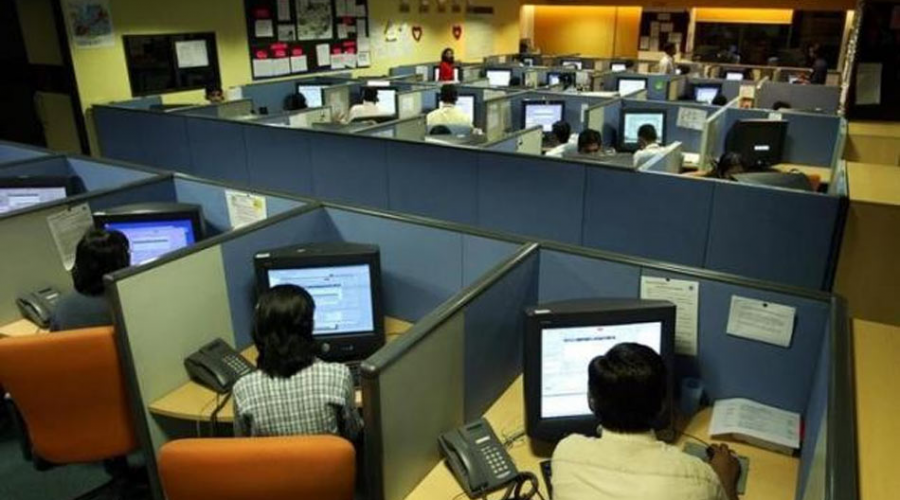
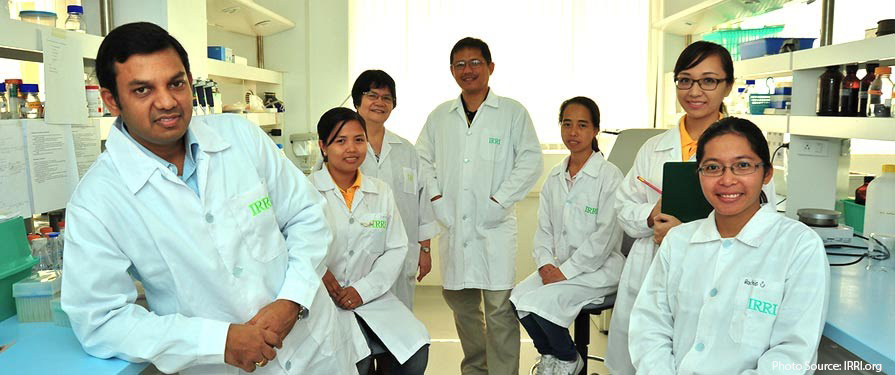
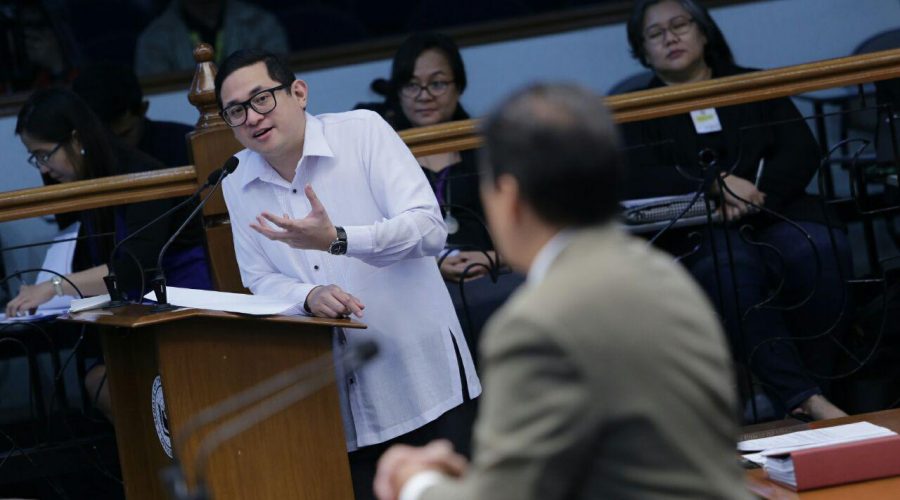
Recent Comments